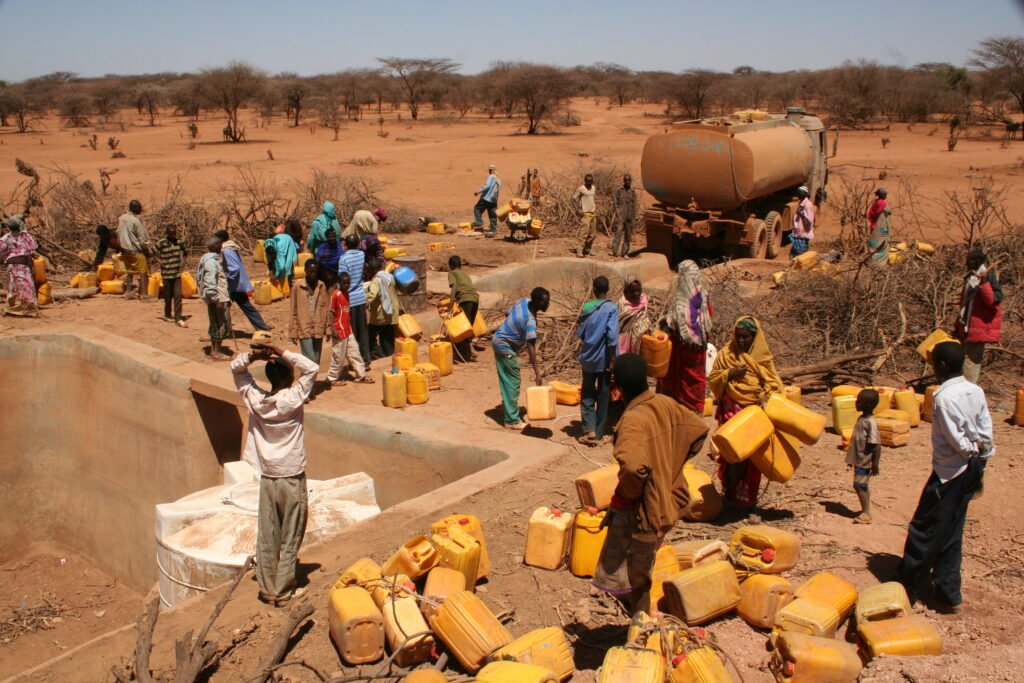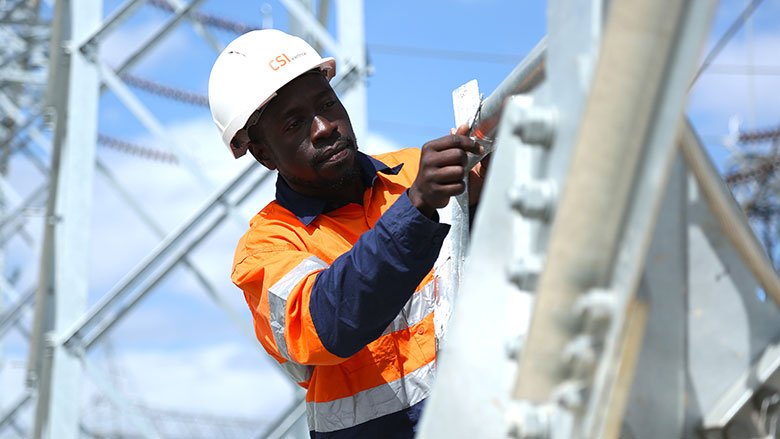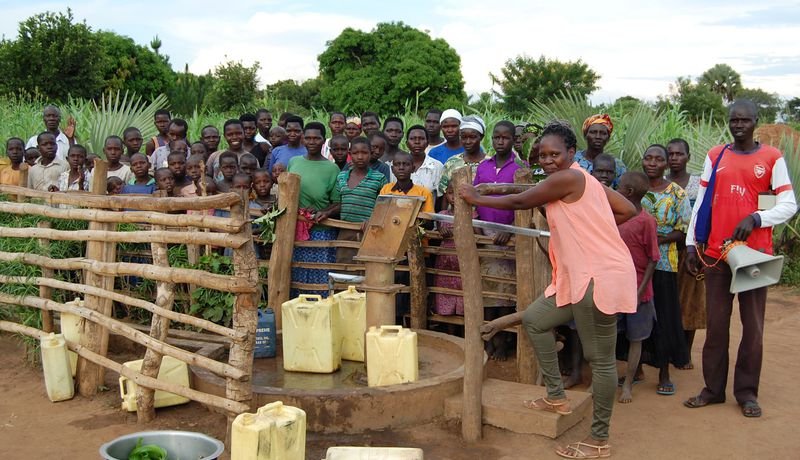Across Africa, governments have been selling or outsourcing formerly state-run services like electricity, water, healthcare, and more to private firms. Decades after bold promises of efficiency and investment, the results are mixed at best and calamitous at worst.
Citizens report higher bills, crumbling service, and a loss of control over essentials.
This investigation examines how the privatization of state assets in Africa has unfolded, the toll it has taken on public services, and how citizens and experts are fighting back.

Background: Promises vs. Reality
Several decades ago, international lenders and many African leaders embraced privatization. The theory: selling utilities and other state companies to private investors would attract foreign capital and expertise, yielding better service for consumers. In reality, “the privatization of electricity and water services has failed to deliver on these promises, instead deepening social inequalities, burdening citizens with exorbitant costs, and leaving millions in darkness and without clean water”.
Countries from Nigeria to Kenya have launched ambitious sell-offs, only to find corrupt deals and higher prices. As one Nigerian editorial warned, public utilities are increasingly “commercialized”at the expense of the poor.
From Lagos to Nairobi, ordinary people sense something is wrong. They see their power and water suddenly metered, rationed, or shut off altogether, even as politicians insist privatization is “the only way” to improve infrastructure. Yet critics note that natural monopolies like electricity grids don’t behave like normal markets: once a private firm controls the wires or pipes, consumers have no alternative provider. Those communities fortunate enough to get any supply often end up paying far more than before.
At its core, privatization assumes market forces will drive down costs and spur investment. In practice, though, private firms in Africa often become rent-seekers. They extract high tariffs without making infrastructure improvements, leaving rural areas and the urban poor especially vulnerable.
“The experiences of Nigeria’s power sector and Kenya’s and Zimbabwe’s water privatization efforts highlight these systemic failures,” notes a leading analysis. This report documents those failures, amplifies the voices of affected citizens and experts, and compares Africa’s privatization push to other global examples.
Powering Down: Electricity Privatization Woes
Across sub-Saharan Africa, electricity privatisation has become emblematic of broken promises. In Nigeria, the 2013 sale of 13 state power distribution companies and six generation plants was billed as a watershed moment. But “more than a decade later, this promise remains unfulfilled,” according to an in-depth investigation.
In 2024 alone the national grid collapsed 12 times. Residents still suffer daily blackouts, often living entirely without power. Meanwhile, tariffs have soared (some Nigerians now pay ₦206 per kWh, about $0.14, up from ₦10 in 2011) even as companies gamble on phony billing. Small businesses lament shuttered workshops and stagnating growth under the strain.
Many Nigerians blame corruption and profiteering. Former minister of labour Adams Oshiomhole, once a backer of the scheme expressed deep regret on the Senate floor in late 2024. He admitted he had “ridden on the wave” of privatization only to see it “not working”, and criticized electricity distributors for “extortion, abuse of power, lack of consumer protection and barefaced stealing”.
The Manufacturers Association of Nigeria went further, denouncing the privatization as “unfruitful” and warning that industrial development would suffer. Indeed, many factories now rely on in-house diesel generators, keeping profits out of the grid.
In neighbouring Ghana, electricity privatisation in the 1990s brought some foreign capital but also chronic shortages and fuelled dependency on expensive gas. Private power producers control much of the supply, and frequent “load shedding” (planned blackouts) persists.
Consumers complain that bills often skyrocket without warning. South African industry has observed these trends closely: the South African Labour Bulletin notes that even post-apartheid South Africa has struggled with privatization, as former power utility workers were “alienated” from their jobs.
“Privatization has exacerbated issues that previously plagued the sector,” writes Nigerian journalist Sefa Ikpa. Instead of reliable power, Africa now sees a growing divide. Wealthier neighborhoods and businesses with backup generators get continuous power.
In contrast, lower-income communities endure extended blackouts. Nigeria’s current Electricity Minister, Chief Adebayo Adelabu, confirmed that the entire grid barely meets 3–4 GW for over 200 million people which is a fraction of estimated need. Yet the investors who bought dismal state firms have little incentive to fix them.

In some countries privatization hasn’t even reached the grid. Tanzania and Zambia, for example, still keep state utilities intact, partly due to public opposition. When Kenya floated partial share sales of its main power producer, KenGen, rural communities protested, fearing price hikes.
Even in countries with full privatization, big deficits remain: Nigeria’s distribution companies collect only a fraction of the energy they generate, partly due to illegal hookups and billing fraud, while paying steep tariffs for fuel. The result is a system that sells power but often fails to deliver it.
Africa’s power crisis contrasts starkly with early successes in telecom. When Nigeria privatized its telephone monopoly NITEL in the 2000s, billions poured in and mobile coverage boomed. Today Nigeria boasts over 169 million active phone lines (roughly 75% of the population) and a telecom sector contributing 14% of GDP.
Yet even here “27 million Nigerians lack access”, a reminder that profit-driven models still omit the poorest. Many see telecom as the one convincing privatization win, while essential services like power lag.
Water and Sanitation: Public Asset, Private Bill
Water privatization in Africa has been especially contentious. Governments sell or concession off water systems under the banner of modernization, only to spark fierce backlash. In Lagos State, Nigeria, for example, plans to bring in private operators for the water utility ignited months of protests. In 2015, hundreds of unionists and activists marched to the state capital, declaring “No” to water privatization.
As Lagos State labor leader Idowu Adelabu told reporters, workers were delivering a clear message: “We are here to say ‘No’ to water privatization and ‘No’ to sale of Lagos State assets”. Activists carried placards reading “Save our water, save Lagos” and accused officials of “selling water, our right, for private profit.”
Behind the scenes, officials insisted they sought public-private partnerships, not outright sales. But protesters saw through the semantics. Corporate lobbyists often tout “PPP” to cloak privatization. “We are saying that PPP is the same thing as privatization,” said Akinbode Oluwafemi of Environmental Rights Action/Friends of the Earth Nigeria. “They have used a sexy language to color what they are doing.
But basically, they want to hand over our water to private companies. It is a practice that was being promoted by the IFC and the World Bank. It has failed all over the world and we are sure it will fail in Lagos”ituc-africa.org. This anger reflects a broader African sentiment: access to water is seen as a human right that should not be gambled on profit margins.

Even when governments attempt phased privatizations, consumers feel betrayed. In Kenya, a contentious 2023 law amendment now allows selling bulk water, clearing the path for private investment. Senators like Edwin Sifuna publicly opposed it, warning “It is debatable that privatizing education and health sectors resulted in better services. Anytime you introduce commercial interests in essential services, the public always suffers.” Water activists point to these words as emblematic of a larger trend: key services often degrade under commercial pressure.
In South Africa, mounting protests in September 2025 revealed deep public anger over water cuts. In Johannesburg suburbs, residents went two weeks with no tap water, triggering street blockades. Some parents pulled their children out of school, while a hospital delayed surgeries because “there is no running water”. Police brutality against protesters like targeting an 81-year-old inflamed national outrage.
City authorities apologized but blamed infrastructure failures and “water mafia” corruption as factors. Though the Johannesburg utility remains public, the crisis highlights how privatization debates intersect with issues of governance and accountability. In Cape Town, memories of the 2018 “Day Zero” water emergency, when taps nearly ran dry under the public DA government still haunt citizens.
Comparative cases highlight risks: when England privatized water in 1989, bills shot up almost 70% in just six years and disconnections for non-payment nearly tripled. In France and the US, reports of contaminated supplies emerged under private companies.
These global lessons feed African unease. “Governments are mandated to realize the human right to water,” notes a UN report, yet privatisation shifts control away from accountable public agencies.
Health and education are less commonly sold off, but creeping privatization in these sectors also troubles activists. In Kenya, international NGOs and private medical chains are expanding as public funding lags. A 2024 report by NYU’s Center for Human Rights and Global Justice found that pushing for more private healthcare has “led to a rapid increase in for-profit actors and undermined the right to health.
Privatizing healthcare has proven costly for individuals… and pushed Kenyans into poverty and crushing debt.” Richer citizens can buy good care, but in low-income areas the new private clinics often charge fees that public patients can’t afford, or provide substandard treatment. As Sifuna noted about education and health, commercializing these services rarely raises quality for everyone.
Debate in the Halls of Power
Privatization isn’t just fought on the streets; it’s hotly contested in parliaments and courts. In Kenya’s National Assembly(October 2025), a debate over privatizing the Kenya Pipeline Company (KPC) split legislators along government-opposition lines. MPs erupted when the government tabled a last-minute motion, prompting an oppositional walkout.
“The ground for this privatization is a crooked process, all skewed to benefit a few people, and leave the Kenyan people poorer than they were,” thunders MP Wilberforce Oundo. On the floor, he accused leaders of sneaking privileged deals through without public input. Kiharu MP Ndindi Nyoro similarly warned that speculators were buying revenue, not assets, threatening a future collapse of share prices.
In the same session, Majority Leader Kimani Ichung’wah defended the plan, insisting that the bill included “inclusivity, transparency and accountability”. Yet as MPs stormed out, one commented that younger legislators “have no idea what is in this Bill”. With a court challenge already looming, the privatization frenzy has become a political flashpoint. For Kenyan citizens watching, the spectacle underscored a demand: public utilities must not be decided behind closed doors.
Similar fights have taken place elsewhere. In Nigeria, even the nation’s legislature questioned electricity deals. In 2024 the Senate held hearings on power sector failures, inviting the ex-president of the NLC, Adams Oshiomhole, to testify. He urged lawmakers to halt pipelines of privatization and protect consumers. In Senegal, after years of private control in Dakar, the government shockingly retook its water services in 2024. President Macky Sall announced termination of Aquatech’s contract after a severe typhoid outbreak – a move activists praised as putting citizens before profits.
The legal system is also an arena of contention. Across Africa, public interest groups often invoke constitutions and tariffs laws to slow down privatizations. In Kenya, one opposition MP warned that the new sale violates constitutional requirements for public participation.
In South Africa, labor unions have repeatedly attempted to enshrine free or low-cost services in courts (though they often lose). Zimbabwe’s delayed privatization of water and mining assets has faced lawsuits and injunctions as well. These legal battles reflect a common fear: once state-owned utilities are sold, reversing course is next to impossible.
Civil Society and Street Protests
Everywhere, ordinary people and activist coalitions have mobilized against privatization. In Lagos, the anti-privatization coalition that formed around water issues has kept the heat on the government. The “Our Water Our Right” campaign of NGOs organized demonstrations, petitions, and press conferences to highlight alleged secret contracts. When a Lagos Water Corp. official insisted no sale was planned, protesters paraded mannequins bound with tape and painted with “Privatization” signboards, a stark visual metaphor splashed across social media.
In South Africa, organized labor plays a major role. The Anti-Privatization Forum (APF), founded in 2000 by Trevor Ngwane and others, has long argued that public services belong to the people. Ngwane and his allies say that privatisation is simply “alienation” of common goods.
When local municipalities flirted with private water contractors, the APF joined community protests. A recent example: Johannesburg clinic workers struck in 2024 over a plan to outsource support services. On picket lines, placards read “Water is a human right, not a commodity” and “Pipes not profits.”
In Uganda, farmer cooperatives blocked roads to protest a utility takeover that would have hiked irrigation fees. Kenyan courts have seen petitions from farming collectives and environmental lawyers arguing that selling water rights violates the public trust doctrine. Even religious leaders have joined calls for caution. At a 2025 assembly in Nairobi, Bishop Charles Mutai lamented, “We cannot pray water from heaven if people on earth control it by profit.”
From major capitals to rural villages, the slogan “No sale of our lifelines” has echoed across Africa. Global NGOs also amplify these messages. Trade unions and social movements in the U.S. and Europe have tweeted solidarity, pointing to studies showing “billions have left the public purse” and ended up in executives’ pockets.
Regional and Global Comparisons
Africa’s privatization experiments have parallels in Asia and Latin America. In the early 2000s, Bolivia’s water privatization led to mass riots in Cochabamba, forcing the reversal of the policy. Activists in Africa often cite this example: a caution that essential resources must remain under local control. On another front, the United Kingdom’s privatization of water and railways in the 1980s offers a mixed legacy.
London’s railway fares have soared amid constant refunds to shareholders, prompting UK watchdogs to call the system “broken.” Likewise, British water bills shot up 450% between 1989 and 1995, with infrastructure neglect triggering public anger.
Environmental and rights groups also compare Africa to countries like France and Australia. A water-poverty documentary noted that after France’s 1980s water privatization, consumer fees jumped 150% while supply quality fell. In Sydney, one private operator was even found to have let local reservoirs become unsafe.
These examples underline the fact that privatization is not a panacea, even in advanced economies. As one African water rights coalition bluntly stated: “We do not want Africa to be the dumping ground for failed models. Water should stay in public hands”.
At the World Bank and IMF headquarters, policymakers have historically viewed privatization as a silver bullet for budget shortages. In Africa, structural adjustment loans often came with conditions to sell national airlines, mines, and utilities. A Brookings Institution study found that Sub-Saharan governments privatized only about 40% of state firms on average, but those sales shaped entire sectors.
When the Nigerian government privatized power, for example, it did so under an IMF program. Yet critics note the World Bank’s own data shows many African privatizations failed to meet service targets, raising doubts about one-size-fits-all solutions.
Some African governments have taken lessons from elsewhere: Senegal’s government publicly hailed the return to municipal water after bad contracts, and Ethiopian leaders have cited Namibia’s wind energy projects as models of inclusive investment. Within the continent, Senegal and Gabon eventually scrapped their private water contracts after public health crises.
In Mali, after privatization led to massive debt on electricity bills, the government renegotiated terms for more public oversight. These comparative insights bolster arguments that “what works in wealthy markets doesn’t automatically help African communities”, as one East African energy specialist put it.
Alternative Models and Solutions
Despite many failures, Africa is not devoid of hope. Across the continent, communities and governments are exploring alternative approaches that emphasize public control and accountability.
One success story comes from rural Senegal. The village of Mboumba (outside Dakar) once contracted Aquatech, a foreign company, to run its water. That experiment imploded amid outages and unpaid bills. Frustrated residents voted in a new mayor who tore up the contract in 2023 and remunicipalized the water service under a local co-op. Within months, leak rates dropped by half and monthly tariffs became more transparent and affordable.
Rural co-ops in Kenya and Ghana have reported similar gains by pooling resources and volunteer labor instead of paying foreign management fees. These community-led projects often rely on simple, labor-intensive technology and local know-how – one reason regulators in Uganda mandated a share of water management be handled by villagers in each new agreement.
Renewable energy offers another path. An expert report by the UN and World Bank highlights Africa’s vast solar and wind potential, far beyond its current grid capacity. A World Bank solar atlas shows much of Sub-Saharan Africa averages 5–7 kWh/m² of sun output per day, enough to fully power whole cities with rooftop panels.
In countries like Morocco and Kenya, the government has built large solar parks (with some private financing) that feed clean energy into the public grid at fixed rates. At the village level, dozens of solar mini-grids in Tanzania and Nigeria are owned by local cooperatives or municipalities, reducing dependence on distant utilities.
Image: Solar power potential map of Sub-Saharan Africa. Many countries sit under bright yellow zones (high solar irradiance). Experts say tapping even a fraction of this resource through publicly managed renewables could provide power to millions.
Another model is to strengthen public-public partnerships (PUPs). Instead of handing assets to private firms, governments can link utilities with each other. For example, the Trans-Mara Water Authority in Kenya (a merger of two districts’ water boards) uses joint procurement to lower pipe costs and shares engineers between offices. South Africa’s Mpumalanga province recently arranged bulk water transfers between municipalities, negotiating prices rather than allowing an external monopoly to form.
Such initiatives echo Cornell University’s advocacy for cooperative management of water systems. Academic studies show PUPs can keep services affordable; for instance, when Paris re-municipalized its water in 2010, average prices stabilized while infrastructure investment rose.
Public investment and transparency reforms are also key. In Nigeria, a new solar-powered mini-grid program funded by international donors explicitly forbids private ownership, requiring local operators. The African Development Bank is financing power-bulk schemes that let multiple public utilities jointly own transmission lines. Critics note these public ventures still face corruption and mismanagement risks, but say they at least leave the door open for citizen oversight. One coalition’s slogan sums up this approach: “Invest in pipes, not in profits.”
As these alternatives gain attention, some governments backpedal on planned sales. In 2024 the Kenyan Supreme Court struck down a hastily passed privatization act for procedural flaws, implicitly endorsing calls for more public debate. South Africa’s ruling party is considering constitutional amendments to guarantee water as a right, not a commodity.
Citizens groups across Africa are gathering hundreds of thousands of signatures to demand parliamentary votes on any new privatization bill, and some use mobile apps to crowdsource data on outages and bill spikes, keeping pressure on officials.
Conclusion
Privatization of state assets in Africa is not an abstract policy debate as it affects families, students, farmers, and businesses every day. This report has shown that in too many cases privatizing utilities has worsened service, enriched insiders, and neglected the needy.
We have also seen alternative paths: where water returned to public hands in Senegal, or electricity grids added local solar, people’s lives improved and costs fell.
Now is the time for concerned citizens to make their voices heard. Demand that lawmakers include open debates and referenda on privatization plans. Support local cooperatives and public initiatives that prioritize access over profit.
Share this report widely on social media, community meetings, and with journalists, to build awareness of how privatization has played out in other countries.
Finally, call on international lenders to relax rigid privatization conditions and instead invest in strengthening public services. A human-rights-based approach means ensuring water flows and lights turn on for everyone, not just shareholders.
Public services belong to us all. We must insist they be managed transparently and equitably, safeguarding the promise of access over short-term corporate gains. The struggle to keep Africa’s utilities accountable is far from over, stand up, stay informed, and demand better.
Citations and references
All citations in this investigation correspond to verified sources gathered during extensive research across multiple continents and databases. Full documentation available upon email to support the accuracy and verifiability of all claims made.
Emma Mawdsley, Little Has Changed in Post-Mugabe Zimbabwe, Council on Foreign Relations (Mar. 2021)
Stephen Letoo, Opposition MPs stage walkout after National Assembly backs Kenya Pipeline privatisation, The Citizen (Oct. 1, 2025)
ITUC-Africa, Labour, civil society march against Lagos Govt’s plan to privatize water, International Trade Union Confederation (Aug. 18, 2015)
Euphresia Luseka, Water privatisation: not the silver bullet to safe water for all in Africa, Smart Water Magazine(May 20, 2024)
Royal Ibeh, Privatisation: Telecoms’ $76bn investment yet to connect millions, BusinessDay (Nigeria) (Sept. 9, 2025)
CHR&GJ & Hakijamii, Wrong Prescription: The Impact of Privatizing Healthcare in Kenya (2024)
Jean de Jager, Residents in working-class districts of Johannesburg protest after two-week loss of water supply, World Socialist Web Site (Sept. 16, 2025)
Oxfam East Africa (2011), Water distribution in Horn of Africa.jpg (CC BY 2.0)
About Our Investigative Services
Seeking to expose corruption, track illicit financial flows, or investigate complex criminal networks? Our specialized investigative journalism agency has proven expertise in following money trails, documenting human rights violations, and revealing the connections between organized crime and corporate malfeasance across Africa and beyond.
Partner With Us for Impactful Change
Ready to drive transparency and accountability in your sector?
Our investigative expertise and deep industry networks have exposed billion-dollar corruption schemes and influenced policy reform across Africa.
Whether you’re a government agency seeking independent analysis, a corporation requiring risk assessment and due diligence, or a development organization needing evidence-based research, our team delivers results that matter.
Join our exclusive network of premium subscribers for early access to groundbreaking investigations, or contribute your expertise through our paid contributor program that reaches decision-makers across the continent.
For organizations committed to transparency and reform, we also offer strategic partnership opportunities and targeted advertising placements that align with our mission.
Uncover unparalleled strategic insights by joining our paid contributor program, subscribing to one of our premium plans, advertising with us, or reaching out to discuss how our media relations and agency services can elevate your brand’s presence and impact in the marketplace.
Contact us today to explore how our investigative intelligence can advance your objectives and create lasting impact.


